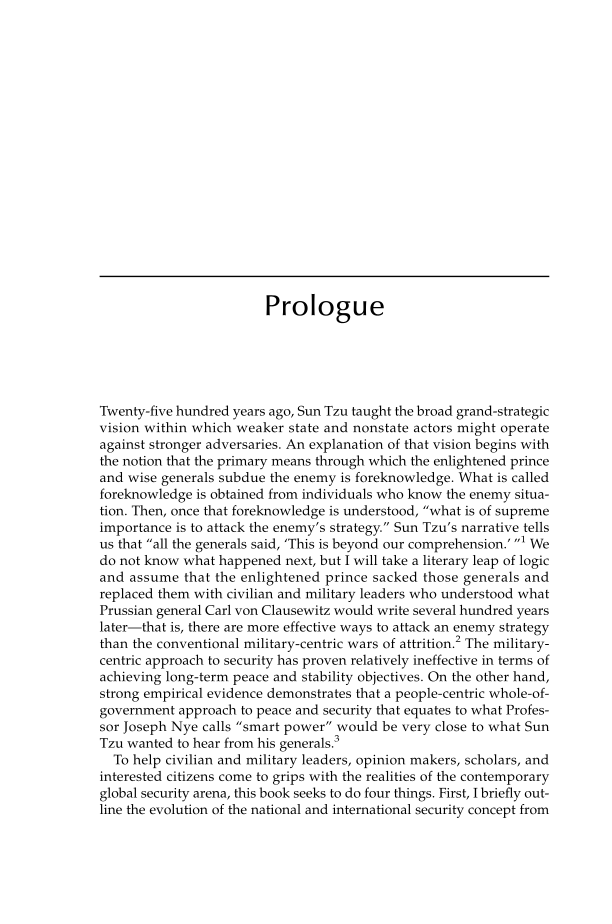Prologue Twenty-five hundred years ago, Sun Tzu taught the broad grand-strategic vision within which weaker state and nonstate actors might operate against stronger adversaries. An explanation of that vision begins with the notion that the primary means through which the enlightened prince and wise generals subdue the enemy is foreknowledge. What is called foreknowledge is obtained from individuals who know the enemy situa- tion. Then, once that foreknowledge is understood, “what is of supreme importance is to attack the enemy’s strategy.” Sun Tzu’s narrative tells us that “all the generals said, ‘This is beyond our comprehension.’ ”1 We do not know what happened next, but I will take a literary leap of logic and assume that the enlightened prince sacked those generals and replaced them with civilian and military leaders who understood what Prussian general Carl von Clausewitz would write several hundred years later—that is, there are more effective ways to attack an enemy strategy than the conventional military-centric wars of attrition.2 The military- centric approach to security has proven relatively ineffective in terms of achieving long-term peace and stability objectives. On the other hand, strong empirical evidence demonstrates that a people-centric whole-of- government approach to peace and security that equates to what Profes- sor Joseph Nye calls “smart power” would be very close to what Sun Tzu wanted to hear from his generals.3 To help civilian and military leaders, opinion makers, scholars, and interested citizens come to grips with the realities of the contemporary global security arena, this book seeks to do four things. First, I briefly out- line the evolution of the national and international security concept from
Document Details My Account Print multiple pages
Print
You have printed 0 times in the last 24 hours.
Your print count will reset on at .
You may print 0 more time(s) before then.
You may print a maximum of 0 pages at a time.

































































































































































































